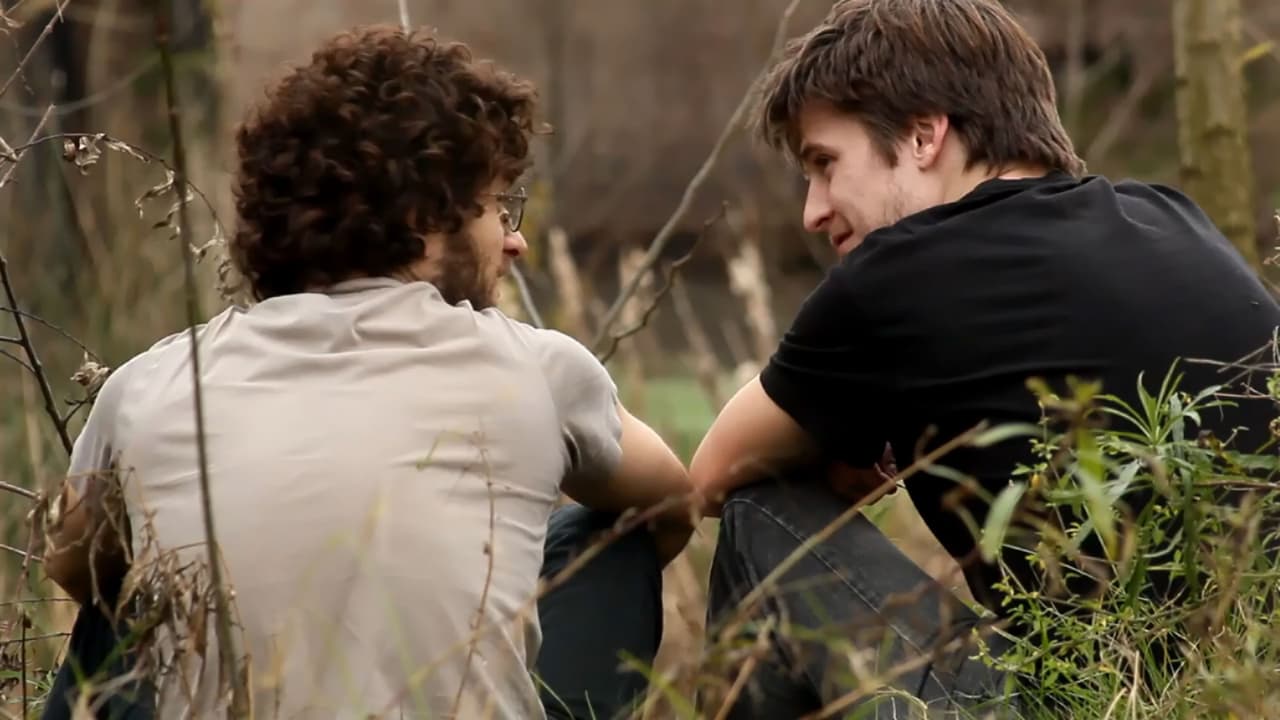



I think this is a new genre that they're all sort of working their way through it and haven't got all the kinks worked out yet but it's a genre that works for me.
View MoreDon't listen to the Hype. It's awful
Instead, you get a movie that's enjoyable enough, but leaves you feeling like it could have been much, much more.
View MoreThe movie is wonderful and true, an act of love in all its contradictions and complexity
View MoreHawaii's scarce use of dialogue may put you off at first, but the beautiful music that fills up the emptiness surely makes up for it. Every time they do speak, it's either something simple or profound. The overall "feel" of the film is homely and warm. The softness of their voices adds to it. The tension between the characters is totally palpable and frankly adorable. There isn't really any sexual content, which was a pleasant surprise to me. But I digress. Definitely don't watch this if you're in a rush. Take your time, rewatch it many times. Soak it up. There's a lot of heart in this movie that has you feeling a thousand things at once. The setting is beautiful, the camera work keeps things interesting, the acting is really natural and easy to watch, and when it's over you'll wish there was more. Hawaii avoids clichés while maintaining a kind-of-plot (the one down-side: not a whole lot going on besides two men falling in love, but I, personally, don't mind at all, and I don't think you will either). It's realistic and tender and just pretty neat! Definitely deserving of a 10/10.
View MoreOne of my favorite gay films ever. A charming tale about a young man (Martín, played by Mateo Chiarino) who is down on his luck, homeless and poor much of his life who returns to his birth town and randomly goes to work for a childhood friend (Eugenio, played by Manuel Vignau) as a handy man. The wealthy Eugenio, who is gay, takes a liking to the attractive Martin and eventually provides him with clothes and a place to stay. Eugenio subtly hits on Eugenio, who is seemingly blind to the advances. Both characters are deftly played, very nice directing and a storyline that at times is suspenseful. Won't give a spoiler but the ending is worthy sticking around for. Very enjoyable movie! Parental alert: frontal nudity by both actors, but not overboard with it.
View MoreYoung(ish) writer Eugenio returns to his childhood home in a small Argentine town. At the same time, another of the town's prodigal sons also comes home: Martín, searching unsuccessfully for a long-lost relative. Homeless and short of funds, Martín starts doing odd-jobs around town and eventually knocks on Eugenio's door, looking for work. It transpires the pair knew each other as children and it isn't long before they are reliving happy childhood memories such as, er, stoning a cat to death. But Eugenio is homosexual and through his actions (spying on Martín in the bathroom; buying him clothes) it is clear he's hoping for more from the relationship than animal abuse. What will Martín's reaction be?I could have done with director Marco Berger pulling back the camera at times; he loves the close-up so much that we never get an idea of how big are the house and grounds that much of the action takes place in because we never see so much as a single wall in full shot (this also means that in the few, mostly out-of-focus, incidences of nudity it's impossible to tell whether the viewer is seeing actors Manuel Vignau and Mateo Chiarino or uncredited body doubles). And the amount of shots that seem centred on Messrs Vignau and Chiarino's crotches is bordering on embarrassing. But the two leads do a nice job of portraying a growing relationship that seems based mainly on friendship rather than repressed desire; indeed (MAJOR SPOILER ALERT!) I'm rather glad we didn't see them consummate their relationship; somehow, that would have spoiled things.
View MoreHawaii is Marco Berger's third solo feature film that comes to close a trilogy of sorts began with Plan B (2009) and continued with Ausente (2011). It's also very likely the best of the three with clear points in common with its two predecessors. The film begins with an overture where the main characters are introduced. Martín (Mateo Chiarino) is looking for a summer job in a small provincial town. He is homeless, we see him staying outdoors in some piece of ground with his very few possessions. Eugenio (Manuel Vignau)is staying at his uncle's, taking care of the property while his uncle is out, using time to work on a novel he is writing. This first part features almost not direct sound but an extra diegetic quasi-melodramatic orchestral arrangement. The second part starts when Martín arrives at Eugenio's place and begins to perform various maintenance works there. From their first encounter we learn they were childhood friends, that Martín used to swim in the property's pool, but now their relationship will be crossed buy an inevitable boss-employee link. The movie yet does not completely fall into some sort of "social realism". Eugenio and Martín's relationship develops into a bucolic tale, where the ambiguity of their intentions plays a fundamental role. Martín may be in a situation of abandonment, but he doesn't tell the truth to Eugenio from the beginning and pretends to be staying with some non existent aunt. Eugenio, on the other hand, takes care of his childhood friend, lends him new clothes, invites him to bath in the house and to swim in the pool, cures him when he cuts with some rusty wire and, when he finds out Martín has been lying about his aunt and is living outdoors, offers him a room. Eugenio needs to insist as Martín does not want to bother his employer and benefactor. An even if Eugenio's intentions are noble and born out of compassion, he can't avoid, with these actions, underlining their uneven, and, for that reason, somewhat uncomfortable relationship: Eugenio is in good financial position, he is a bourgeois, an artist, and the one who pays; Martín is poor, helpless, working-class, the one getting paid. But, for a good part of the movie, these social differences seem to get almost erased as their friendly relationship grows, as they have some kind of regression to childhood, playing child games and visiting old places that bring memories back (something that links this film to Plan B) I remember an Internet meme about Jane Austen novels: it features a female character saying something like "I love him, but he can't know it" and a male character saying "I love her, but she can't know it". Add to this the typical class tensions in Austen's work and you can see how Hawaii plays in these same coordinates. There are many subtle insinuations between both men, but, until the last part of the movie, it's not quite clear if there is a romantic attraction or if Eugenio's actions are born simply out of compassion, and Martin's out of gratitude. What comes to break this dreaminess of the semi-nude bodies in the summer (though far from the sticky atmosphere of Berger's short film Platero, Hawaii's summer is not an unbearable ball of heat in an overcrowded house but a clear and luminous countryside vision), this 'bucolism' of grass and plants and rivers (water, there's a lot of water in the film: the crook, the pool, Martín's bottle to drink, the faucet which he 'steals' water to wash himself of, Eugenio's house shower) is the coming of Eugenio's older brother, which constitutes a key moment (and a very powerful one). I don't want to spoil it, so I will just say it's a scene full of (verbal) cruelty but with certain honesty and accuracy that makes it even more painful. The romantic daydream is broken (the micro-climate created by having only two characters interacting in the same locations for most of the film is destroyed), the (insuperable?) social tensions and distance (re) appear at the center of the scene. The 'phantasmatic' epilogue that follows reminds us of Ausente's ending, though, I dare to say, with more subtlety and effectiveness. Special mention to both main actors. Berger's years of studying theater and as a theater teacher are noticeable, he brings out great performances from the leads and deserves to be consider a great actor's director. Vignau is in a different register to Plan B's Bruno, more obscure, bereft of the funny arrogance of that character, and full of the required ambiguity. Uruguayan Mateo Chiarino is extraordinarily photogenic, but much more than just a pretty face: the way he portrays Martín's abandonment is remarkable, in his way of speaking, his elusive eyes, his attitude that might resemble a stray dog the has found a helping hand but is still apprehensive.
View More